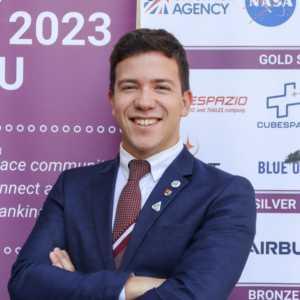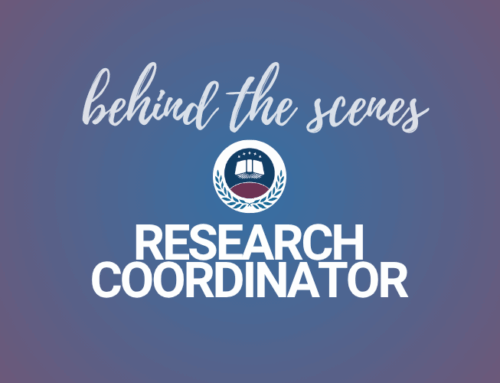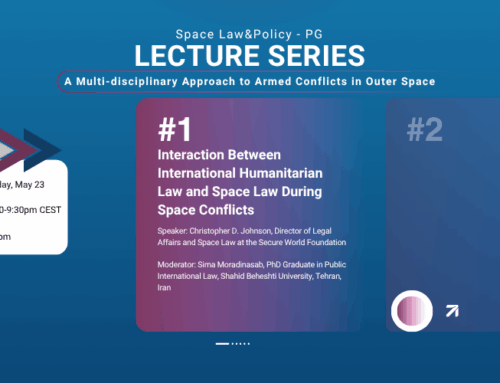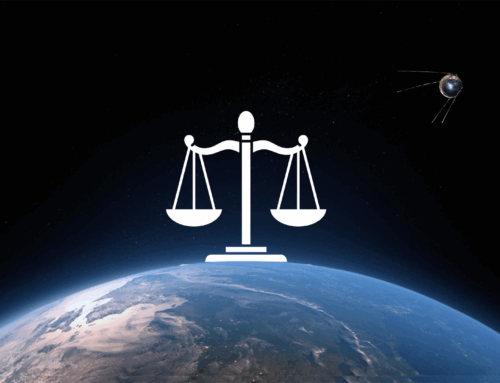My reflection was [that] progress for the sake of progress and space exploration just for the sake of space exploration—without considering impact on environment, on communities, on sustainable development—is not, in my opinion, something that’s worth pursuing.
Alvaro Piris Cuiza is a Risk Management Specialist by trade and a physicist by training. After completing an integrated M.Sc. in Particle Physics and Cosmology from the University of Birmingham, and then another M.Sc. in Theoretical and Mathematical Physics, Alvaro began working at a finance firm called Management Solutions, which is where he has been ever since.
Alvaro’s interest in policy stems from his upbringing. His parents work for the European Union so the diplomatic angle has always been a central perspective.
“[My family] has always known that through a common understanding of shared goals, initiatives are much healthier and everything runs better.”
Throughout his university courses, Alvaro wondered why the outer space legal instruments were not taught in conjunction with planetary sciences. He recalled studying fascinating topics like planetary chemical compositions, astronomy, and resource extraction, but the curriculum lacked a tether to practical applications of this knowledge. When he found out about the 1967 Outer Space Treaty, it sparked an interest in policy-related questions about space sustainability that ultimately led him to SGAC.
“My reflection was [that] progress for the sake of progress and space exploration just for the sake of space exploration—without considering impact on environment, on communities, on sustainable development—is not, in my opinion, something that’s worth pursuing.”
Though Alvaro doesn’t deal with space policy during his day job, he has found that his comprehensive understanding of financial markets has enabled him to view the space sector through an economic lens.
“I’ve witnessed [the] development of a really dynamic, vibrant, and diversified market. Space has transitioned from being a fairly academic field to playing a pivotal role in the agendas of international political strategy.” Alvaro said, citing the dramatic increase in the number of space industry actors. “You have entrepreneurs that you now factor in [as] key drivers in order for the [market] to remain competitive.
I asked Alvaro about his early days at SGAC. After all, he came in with a STEM background but had to adjust to a new legal framework of interpreting texts, problems, and personalities. Alvoro told me this: when you transition into a new field, it’s not only about catching up. The role of your skillset is allowed to change. You shouldn’t be afraid to ask questions, and you will have to put in the work. For Alvaro, entering the field from a humbled vantage point put him in the best position to pinpoint the strengths of his colleagues so as to facilitate their success.
Alvaro kindly called me from his office in Paris. The winter’s early evening had plunged the city outside his window into darkness. He was wearing a cozy white mock neck shirt the colour of the white wall behind him. Because his surroundings didn’t give me much (but mostly because he also prepared written answers), I’ll let Alvaro’s words speak for themselves.
What drew you to get involved with space law and policy?
While studying astrophysics at university, I developed an interest in the diplomacy of space operations. Diplomacy has always been present in my family, and I grew up knowing that the best initiatives are born from shared understanding and mutual commitment.
I’d like to say my journey into SGAC and space law was smooth and just fell into place, but it wasn’t. It was a significant challenge—learning new concepts, understanding the subtle nuances that are part of legal practice, and venturing into an entirely new field. But I wasn’t alone in this. I had the support of many people who believed in my abilities and helped me navigate this new territory.
What is the best piece of career advice that you’ve received?
The best career advice I’ve ever received came from my father, who, in a moment of doubt, wisely quoted one of my favorite movies, Hidden Figures.
In the film, as NASA struggles to find a way to safely reenter the Mercury 7 pod, the director of the Space Task Group turns to his lead engineer and says: ‘Do you know what your job is, Paul? To find the genius among those geniuses. To pull us all up. We all get to the peak together, or we don’t get there at all.’
That quote profoundly resonated with me. We all aspire to be the best at what we do, especially as we move into more senior roles, it’s the natural thing.
When I first started working at SGAC, I was overwhelmed by the sheer brilliance of the people around me. Even as I progressed to my current position as Project Group Co-Lead—one of SGAC’s most prestigious leadership roles—I struggled with imposter syndrome.
But the realization that changed everything for me wasn’t that I needed to be the smartest person in the room or that I had to prove my worth by outperforming others. It was understanding that my true skill, and my true purpose, lay in recognizing talent, empowering those with the potential for greatness, and helping them reach the heights they were meant to achieve. As the movie so perfectly put it: ‘We all get to the peak together, or we don’t get there at all.’
Yes, we all appreciate recognition, but history remembers those who rise to greatness—because someone believed in them. And I’ve found that, for me, there is just as much fulfillment in being that person.
Is there anything you would have done differently?
If I could have done anything differently, it would have been to be bolder. I would have spoken my mind more often, seized those opportunities that seemed beyond my reach, and pushed myself harder when I felt complacent. Struggle is a fundamental part of life, something we all face in different forms. But what truly matters is how we respond to that struggle—whether we confront it and choose to take action. That’s what ultimately shapes our future. It’s a lesson I need to remind myself of constantly, and it’s a challenge I will likely stumble on many more times. But with each experience, I’ll learn and grow, becoming more determined and steadfast in the face of adversity.
What do you see on the horizon in your field?
From the standpoint of someone who deals with risk management on a daily basis, I believe we are truly in a golden age of space exploration and the space industry. However, I can’t shake the feeling that we are currently in a state of euphoria, fueled by the tremendous progress we’re seeing. Across industries, I’m increasingly witnessing a shift away from risk management practices, often seen as restrictive and halting progress. The term “risk” has taken on a negative connotation, with many viewing it as a barrier to innovation and growth.
The space sector especially is no longer a realm of science fiction; it is a vital and powerful industry on which many depend. As it continues to evolve, the market is not yet prepared to handle the full impact of a fully developed space industry. Without immediate attention to the risks at hand, we could face severe consequences that might stifle or even collapse progress. Looking ahead, I hope to see a stronger focus on proactive risk management—one that takes a central role in the development of this field, ensuring the long-term sustainability and resilience of the space industry.
If there was anything you could change about the industry, what would it be?
That’s a tough question, because we still have so much progress in front of us, and it’s hard to predict exactly what the future holds. From a diplomatic standpoint, if I were feeling particularly optimistic, I would advocate for States to set aside their conflicts and collaborate toward a shared goal of space safety and sustainability. Because international space decisions are made by consensus, these conflicts have caused decades of stagnation in policy development. Instead of creating legally binding frameworks, we’ve had to rely on voluntary measures and transparency-building initiatives. But, of course, that’s the optimistic perspective.
From a more practical and immediate viewpoint, I would urge the industry to make more effort to integrate younger voices into the conversation. We are the ones who will ultimately bear the consequences—and benefit from—the decisions made today. It’s essential that these decisions improve our livelihoods and ensure the sustainability of the space sector. While progress is being made in this area, I still hear too often that younger generations are not ready to face the “harsh realities” of the industry. My experience at SGAC has shown me just the opposite, and I believe we have a lot to offer in terms of fresh perspectives and innovative ideas.
Is there any wisdom you’d like to pass on to students or early career professionals?
Take the risk (yes, I know, coming from a risk management professional!). Be daring, be bold. The space sector is still filled with unknowns and constantly requires fresh ideas and innovative initiatives. There is no question too small, no goal too insignificant, and no avenue of exploration too narrow that it doesn’t deserve to be pursued. Don’t be afraid to ask questions, to explore new ideas, and to chase what you believe is important. Your efforts have the potential to shape the future of the space sector, so make sure to take the leap and contribute to that future.
This post was written by Mackenzie Pereira, SLP Professional Development team member.







